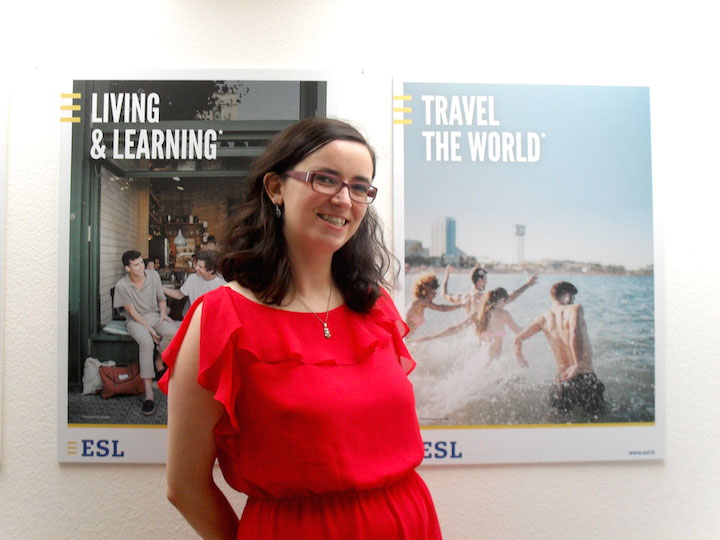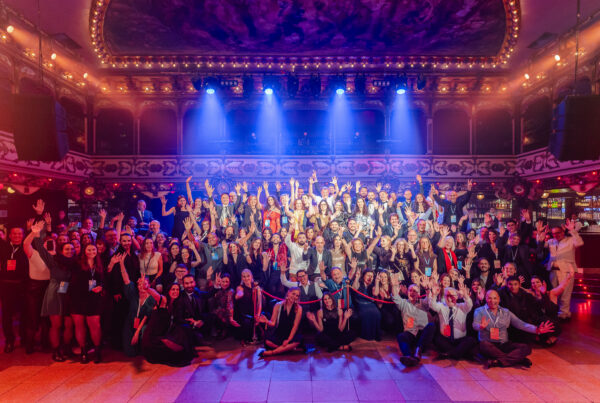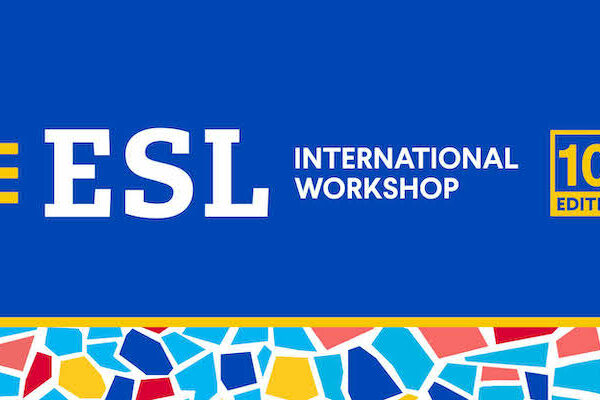It’s really a plus when someone makes an effort to speak to someone in their mother tongue: even when it’s not perfect, it still helps the clients and they really appreciate that. This is an experience we have in our everyday work at ESL Education and one our colleague Juliette in Strasbourg shared with us.

Have you had any funny or embarrassing experiences while studying a language?
I was attending a speaking skills class for my German studies at my university in Strasbourg shortly before leaving for my Erasmus year in Jena, Germany. We were asked to improvise a five-minute talk about a German word. I got “Ostern“, which means “Easter“. I don’t know why, but I was so sure about myself that I started to speak about an ostrich and giant chickens and so on. My fellow students started to laugh heartily. That was the point when I realized I got it completely wrong and I was so embarrassed, because I talked about a giant ostrich instead of Easter holidays in Germany.
Luckily I soon left for Jena, which meant that I was far away from that class and avoided being called the “ostrich girl“. Yes, language learning is sometimes painful, but it’s also fun too!
What is your mother tongue and which languages do you speak at work?
Growing up in a small village in France, French is my mother tongue and I had to study English, German and Spanish at school, which is good because I could also understand my Spanish grandparents. At university I studied German along with Dutch and Swedish as my main studies. Of course English is the main language I speak with my ESL colleagues all over the world, but also with the partner schools we work together with.
When it comes to our international clients from Luxembourg, it’s very helpful that I can speak either English or German with them. Dutch and Spanish are more related to my private life. I love to learn languages because it forces me to think differently every time. Every language has its own logic and understanding it is the best part.
What would you not be able to do in your current position without the different languages you speak?
I would not be able to speak with our international partner schools without speaking English and German. And most important, I couldn’t have a trustful relationship with my clients. It’s really a plus when someone makes an effort to speak to someone in their mother tongue: even when it’s not perfect, it still helps the clients and they really appreciate that. If I didn’t speak all these languages, I wouldn’t have such a good relationship with my clients as I do.
It must be interesting to work in an international company with colleagues from that many different countries…
I remember that during my time at ESL in Montreux we had a visit from a Swedish colleague and I shared the staff apartment with her. When I was visiting Stockholm, Kristin took me to one of the many candy stores, where she grabbed a bag and started to fill it up with all the candies Swedish people love. This also included a very particular candy, called “kriptoniter“ but she wouldn’t tell me what was inside, so I tried it. This candy was at the same time sour, sweet, salty, fruity and I loved it!
Since then, I always bring several bags of this candy which no one else in the office likes. This story shows what I really love about ESL. You meet so many people from all over the world and you stay in contact with them also in private life, even if they’re not working at the company any more. That’s really a plus also for your social life and your cultural education, for example also when an Italian colleague shows you how to do pasta in the right Italian way!
Juliette Villaumé has been a Language Travel Consultant at ESL Education in Strasbourg since 2014, after working for the Dutch and French International Admissions Centre at our HQ in Montreux, Switzerland. The travel addict speaks French, German, English, Spanish, Dutch and Swedish, and is currently studying Russian by herself. Her goal is to speak 10 languages before she turns 40, including Arabic!
Thanks to the Erasmus programme, Juliette lived for 9 months in Jena, Germany where she continued her German studies. It still is her favourite city because you can feel the hundreds of years of German history everywhere and the people are lovely. What she likes in a language are its specificities, the way some sounds or letters do not appear in other ones: like the letter ß that appears only in the German language or the pronunciation of the “g“ in Dutch that sounds like a strong “r“.


